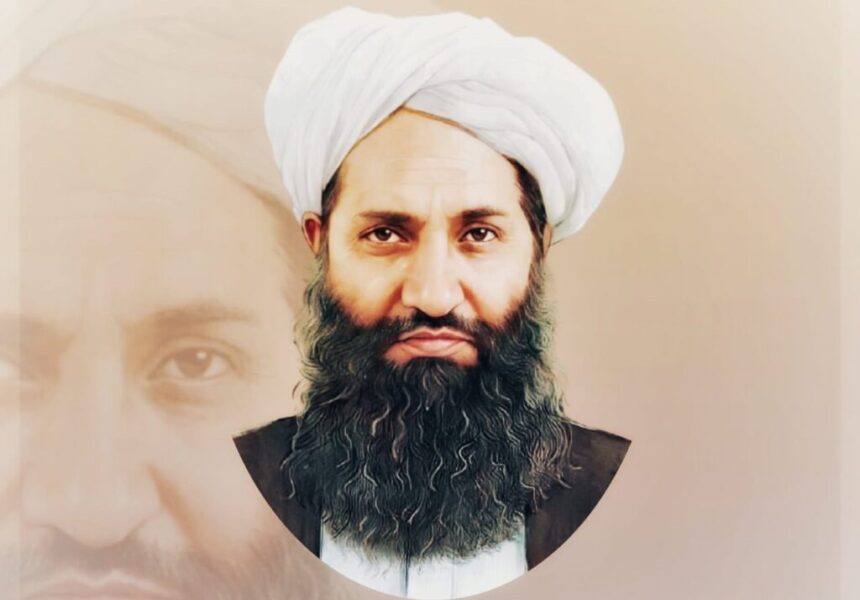RASC News Agency: In a rare public address to a select group of clerics and Madrassa administrators in Kandahar, Taliban supreme leader Hibatullah Akhundzada issued an urgent warning over what he described as a “dangerous erosion of trust” within the ranks of the group. According to a statement released Sunday by the Taliban’s spokesperson, Akhundzada cautioned that disunity and internal suspicion were sowing the seeds of defiance posing an existential threat to the regime’s cohesion. Emphasizing the pivotal role of religious authorities in shaping the Taliban’s autocratic social order, Akhundzada urged Islamic scholars to maintain ideological discipline and prevent what he described as “creeping dissent.” He stated that the role of the clergy must transcend personal piety and encompass all aspects of governance ranging from judicial rulings and conflict resolution to ideological indoctrination and societal control.
He described Taliban-run religious seminaries as “the ideological heart of the Emirate” and called on clerics to ensure not only jurisprudential instruction but also the moral and behavioral “purification” of students. “Only through absolute adherence to religious orthodoxy,” he declared, “can the vision of a truly Islamic society be realized.” Akhundzada further warned, “Where there is no trust, there is rebellion. And rebellion breeds division. Division is the precursor to collapse.” While the Taliban’s reclusive leader continues to preach unity and blind obedience, a growing body of evidence suggests that the group’s internal structure is under increasing strain. Tensions between the hardline Kandahar faction, which follows Akhundzada’s uncompromising interpretation of Sharia, and the more pragmatic Haqqani network based in Kabul have become increasingly apparent.
Sources close to the matter report deepening disagreements over key issues such as the blanket ban on girls’ education, the monopolization of power by southern Pashtun elites, and the Taliban’s opaque and exclusionary approach to international relations. The forced resignation or political sidelining of influential figures such as Deputy Foreign Minister Abbas Stanikzai has further fueled speculation of growing unrest among mid- and high-ranking Taliban officials, particularly among non-Kandahari and non-Pashtun members. Critics note that while the Taliban leadership demands unwavering allegiance and enforces religious conformity through fear and surveillance, it offers little in return to its rank-and-file members or the broader population especially in northern and ethnically diverse provinces. The regime’s failure to deliver inclusive governance, basic services, or economic stability has turned even some of its longtime fighters and commanders into skeptics.
Observers warn that if the current trajectory continues, these internal divisions may evolve into open confrontation. Already, reports have emerged of mounting frustration among Taliban commanders in provinces such as Takhar, Badakhshan, and Panjshir regions that have long resisted Taliban domination and where ethnic discrimination by the predominantly southern Pashtun leadership remains rife. Ultimately, Akhundzada’s plea for unity betrays a profound anxiety at the heart of the Taliban regime: a fear that its authoritarian control, built on repression and exclusion, cannot indefinitely suppress the centrifugal forces now gathering beneath its rigid surface.






